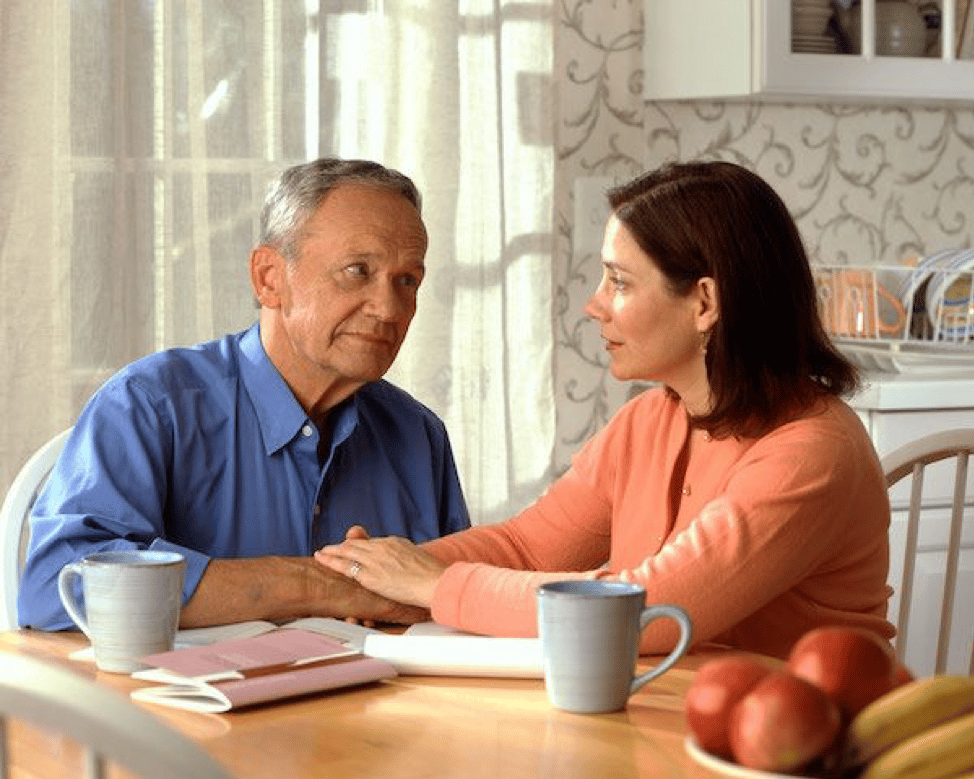
This holiday season are you expecting the same traditions and rituals you’ve done every year with your family and friends? If you have aging relatives, that expectation might be unrealistic. Busy lives can blind us from noticing that our relatives are not functioning as they used to. While we expect the same thing we did last year, that aging relative may be silently struggling to maintain their health and lifestyle, afraid to burden you with their needs or maybe unaware of their needs. This season make time to evaluate your aging relatives. I’ll share some examples, but remember that you know your aging loved ones best. What an outsider might consider normal elderly behavior could still indicate health decline. Speak up if something feels off kilter.
An obvious signs is a change in physical appearance. Wrinkled or dirty clothes, unwashed hair, tired eyes, weight loss or gain could be signs of depression or anxiety. They could also indicate changes in vision, loss of mobility and/or other health issues. Difficulty getting up from a chair or sitting back down is noteworthy. Clutching furniture, walls, counters, etc to steady themself or walking slower than usual is also a clue. Examine their living space. A sparsely filled refrigerator, or one filled with expired food, is evidence that your relative is not keeping up with grocery shopping and is probably not getting proper nourishment. Stacks of unopened mail could mean your relative may be losing track of time and not paying bills. Do you notice burned out light bulbs or an unkempt yard? Look for hazards like stairs with inadequate railing, clutter in walkways, unsecured rugs, etc. Perhaps the signs are less obvious. Your relative may be more forgetful than usual or simply less talkative. Even if your relative just doesn’t seem like themself, don’t ignore that. Confronting an aging relative about their health decline can be difficult, especially if the person is in denial about their reality. But ignoring the decline and leaving them to fend for themself is dangerous. Put yourself in their shoes and consider how you would want to be approached. Your relative may recognize the problem but feel apprehensive about seeking assistance, for many different reasons. Encourage them to voice those fears, and then talk about them.
A physical therapist can do an in-home evaluation and provide a plan of action that meets your relative’s specific needs. Encourage your relative to be evaluated by their primary care doctor and offer to go with them. San Mateo county has a list of counseling centers for seniors struggling with depression, anxiety and other mental disorders. If your relative hasn’t been eating properly, suggest free group dining at local senior centers until you develop a more permanent solution. Keep the conversation going. If your relative ultimately needs assisted living care it’s important to start preparing them for that and planning accordingly. Stay alert and be proactive for aging loved ones this season. It might be the most loving gift you give.
DISCLAIMER: This article contains information that is intended to help the readers be better informed regarding exercise and health care. It is presented as general advice on health care. Always consult your doctor for your individual needs. Before beginning any new exercise program it is recommended that you seek medical advice from your personal physician. This article is not intended to be a substitute for the medical advice of a licensed physician. The reader should consult with their doctor in any matters relating to his/her health.




